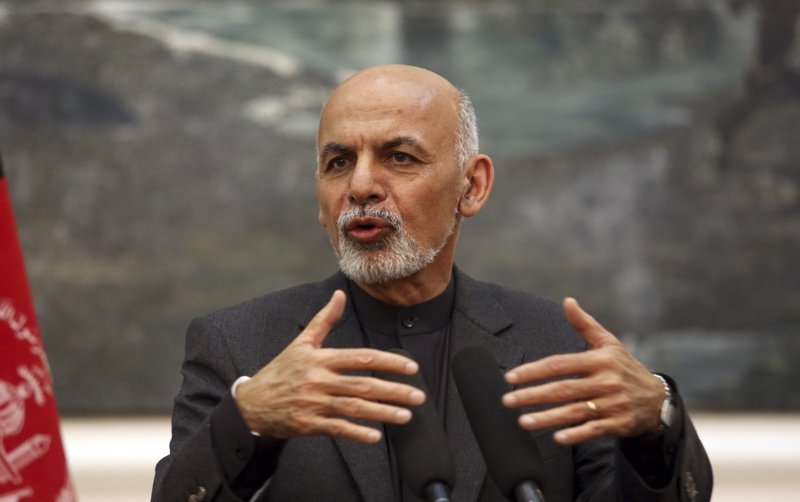KABUL, Afghanistan -- President Ashraf Ghani promised a complete overhaul of Afghanistan's government to root out corruption and incompetence, but after three months in office, three missed deadlines and countless promises, he and his election rival-turned-deputy have yet to appoint a single Cabinet minister.
RELATED ARTICLE
http://www.arkansas…">U.S. returns four to Afghanistan
The repeated delays have meant that Ghani is single-handedly grappling with an array of challenges -- from a revitalized Taliban insurgency to a reset of long-fraught relations with neighboring Pakistan -- and have fueled speculation that he and Chief Executive Abdullah Abdullah, the equivalent of his prime minister, are still at each other's throats.
"They cannot agree on anything; you can hear the shouting from here," said Mohammad, a Kabul shopkeeper, echoing the belief of many Afghans that Ghani and Abdullah cannot work together.
Sources close to both men, including Afghan associates, officials and Western diplomats, say the two have amicably shared the task of selecting potential ministers.
Among the hurdles to naming the full Cabinet, Ghani's spokesman Nazifullah Salarzai said, is ensuring that the government is wholly representative of Afghanistan's complex jigsaw of interests.
"That requires consultations with all parties, with all interest groups on all issues, including gender issues which have to be navigated carefully. All of the complexities of Afghanistan's cultural, ethnic and geographic makeup have to be taken into account," he said.
Ghani is eager to build a meritocratic government, his associates said, and move away from the ethos of patronage that characterized the previous 13 years under President Hamid Karzai. Ghani has said he does not want to appoint anyone who has previously held a ministerial post and that he wants women to assume a number of senior positions.
The stakes are high. The U.S. and NATO will officially conclude their 13-year combat mission at the end of this month, with troop numbers that peaked at 140,000 in 2010 cut to around 13,000 for a training and support role. But the Taliban remain a potent threat, having carried out a string of high-profile attacks in the capital in recent weeks and caused record casualties among Afghan security forces this year, killing some 5,000 troops and police.
Ghani has meanwhile been spearheading what could be a historic rapprochement with fellow U.S. ally Pakistan after a decade of mutual distrust, but he has no foreign minister to shuttle between the capitals. Afghanistan is mired in economic trouble, but there is no permanent finance minister to advise the president or carry out changes.
Ghani fired most ministers in late November and appointed their deputies in an acting capacity ahead of the full Cabinet being announced.
His first deadline, 45 days after his September inauguration, passed with the promise of a Cabinet before a Dec. 4 conference of international donors in London. When that deadline passed, Ghani said the appointments would be made two to four weeks later. As the two weeks passed last week, Ghani and Abdullah separately said at televised events that nominees would be announced within two weeks.
Frustration with the slow progress has fueled speculation in local media and among many Afghans that the national unity government formed after a drawn-out and contentious election -- through an agreement brokered by U.S. Secretary of State John Kerry -- cannot work.
Salarzai insists that it can. "The relationship between Dr. Ghani and Dr. Abdullah is smooth, and they are on the same page when it comes to making the choices," he said. "Whoever is chosen has to be accountable to the president and work with the president every day, so if there were differences over the choice of officials, the government just couldn't function, and that would be self-defeating."
Ghani and Abdullah have divided the task almost evenly between them, with the president appointing people to the most important portfolios, including the ministers of defense, finance, mines, and the intelligence service, according to a list seen by The Associated Press.
Ghani also would appoint the ministers of labor and rural development, as well as the attorney general and the head of the central bank. Abdullah would appoint the ministers of interior, foreign affairs and economy, according to the list provided by a Western diplomat on the condition that he not be identified so he could speak on internal Afghan matters. Some nominees could be announced as early as this week.
Other ministries, such as education and health, would be selected by both leaders, the diplomat and others said, with candidates asked to formally apply. Discussions were continuing on how many ministries will be in the final lineup and whether some will be eliminated, merged or renamed.
A Section on 12/21/2014

